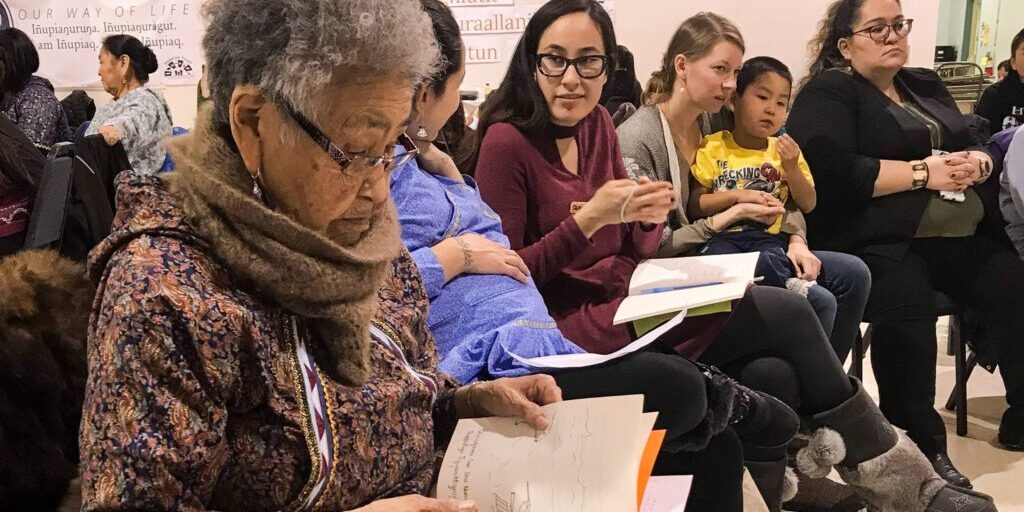“We’ve just been Iñupiaqizing it, indigenizing it, Alaskanizing it,” teacher and administrator Kiminaq Maddy Alvanna-Stimpfle told the Nome School Board.
Many eyes have been on Nome’s Iñupiaq immersion program, which opened this fall.
Alvanna-Stimpfle has created culturally relevant worksheets and materials for students and welcomes elders in the classroom. Almost every day, elders in the community help teach students.
After seeing the program in action, one elder told Alvanna-Stimpfle and her teaching aide that “Iñupiaq is alive here”.
In past interviews, Alvanna-Stimpfle has emphasized the ways that connection to culture and language ownership can lower rates of mental health problems among Indigenous children and teens. After decades where Iñupiaq was seldom spoken in the Norton Sound region, she is
hopeful.
“They’re picking it up very fast, and our language is coming back. It’s coming home, and I’m so thankful for this opportunity. We’re creating this foundation for these children,” Alvanna-Stimpfle said.
Image at top: Summit participants in Kotzebue watch as children sing songs in Iñupiaq. Photo: Katie Kazmierski, KNOM.







